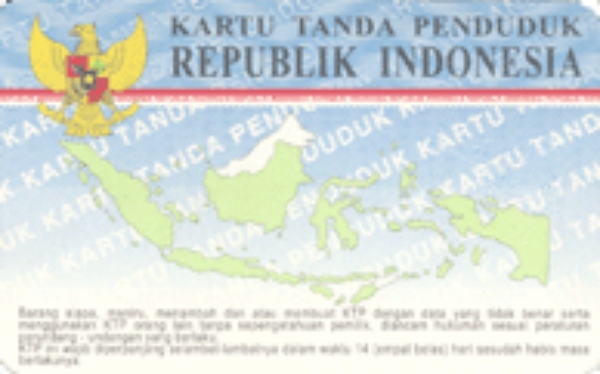Indonesia's discrimination by database
Digitization makes things more efficient. Including bad things.
Digitization of public services and identity systems does is good. When done right, of course, which still happens too seldom, worldwide. For minorities, it is even worse. Especially certain minorities.
Hani was a 33-year-old trans woman who died in 2019 in Surabaya, Indonesia, due to complications from HIV/AIDS.

Since she had never had Indonesia’s official identity card, Hani was essentially invisible to social services. That’s why, said a friend, she was “buried like an animal… Put inside a knee-deep grave, with only a wooden headstone. Without a name, just identification numbers… Just because we don’t own ID cards”.
Indonesia’s digital identity document, known as e-KTP, is necessary for practically anything, from public health care and education to having a bank account or, lately, quick access to COVID-19 vaccines.
In practice, the requisite to be listed in one digital database has basically cut off from those public services many Indonesian citizens like Hani, plus indigenous groups, people living in remote islands and many other groups.
By reading the much longer article where I found this story, the main reason for this seems to be:
- LGBT people, being often outcast from their family (as it happened to Hani), cannot get from them the family-related documents needed to apply for an e-KTP number
- any minority has “historic distrust” of a government that systematically marginalizes them and even purchased digital surveillance systems to do so, plus understandable concerns that being “digitized” would make them easier to find by the same government. This makes the same minorities, so to speak, “less likely to engage with the system at all”
Solutions?
None, at least right now, as far as I am concerned. But this is surely one of the issues that everybody should know these days.
Image source: the e-KTP page on Wikipedia
Who writes this, why, and how to help
I am Marco Fioretti, tech writer and aspiring polymath doing human-digital research and popularization.
I do it because YOUR civil rights and the quality of YOUR life depend every year more on how software is used AROUND you.
To this end, I have already shared more than a million words on this blog, without any paywall or user tracking, and am sharing the next million through a newsletter, also without any paywall.
The more direct support I get, the more I can continue to inform for free parents, teachers, decision makers, and everybody else who should know more stuff like this. You can support me with paid subscriptions to my newsletter, donations via PayPal (mfioretti@nexaima.net) or LiberaPay, or in any of the other ways listed here.THANKS for your support!